The crime against wildlife poses a significant threat to biodiversity. Poisoning, illegal hunting, trapping, collisions, and electrocution are serious crimes against wildlife that are often overlooked and not effectively prosecuted. Addressing these crimes adequately requires collaboration among various organizations and authorities, as well as relevant training and knowledge to enable competent authorities to handle such incidents and enforce the law.
From May 22nd to May 24th, 2024, the international conference “Wildlife Crime: Achievements and Challenges” was organized in Cyprus for the first time by BirdLife Cyprus and the Vulture Conservation Foundation. It gathered over 70 participants from 12 countries from the Balkan and the Mediterranean regions. Participants represented various sectors including environmental organizations, law enforcement, Europol, the judiciary, and governmental departments.
Conference highlights
The conference served as a hub for experts to network and share best practices in investigating and prosecuting wildlife crimes. It also aimed to foster continuous knowledge sharing and strengthen cooperation among authorities in Cyprus, while connecting relevant entities at both national and European levels.
By intensifying efforts against wildlife crime across the EU and nationally, we can significantly reduce wildlife mortality rates and help restore populations of threatened species such as vultures, eagles, and the Balkan lynx.

Best practice experience
Wildlife crime is a priority for action by environmental organizations, law enforcement agencies like Europol, and international conventions (e.g., the Convention on Migratory Species).
Adequate resource allocation is key to addressing this threat effectively. For instance, Spain has dramatically reduced illegal wildlife poisoning by prioritizing biodiversity and wildlife crime. This commitment empowered authorities to ramp up efforts, leading to increased investigations and prosecutions, and creating a strong deterrent. Over two decades, poisoning incidents in Spain decreased by 80%, evidenced by the flourishing vulture populations. Spain’s success has allowed it to donate vultures to bolster threatened populations in Bulgaria, Cyprus, France, and Sardinia.
Progress in the Balkans
In the Balkans, significant strides have been made in reducing and combating wildlife crime. Through partnerships with relevant authorities and the training provided by the BalkanDetox LIFE’s Wildlife Crime Academy, best practices from Spain have been shared with other countries. The academy has trained numerous individuals from Albania, Bosnia and Herzegovina, Bulgaria, Croatia, Greece, North Macedonia, and Serbia, enhancing the skills of professionals in conservation, law enforcement, and forensic science. These individuals are now better equipped to investigate and prosecute wildlife crimes in their respective countries.
Towards solutions and collaborative action
Significant prerequisites for addressing wildlife crime include the existence of adequate legislation (which largely exists in Europe) and the effective enforcement of laws, as well as the knowledge, tools, and motivation for investigating wildlife crime, which is often a challenge. Even more crucial is for prosecutors and judges to be aware of the impact and dimension of wildlife crime and to bring more cases to justice to end impunity. Collaboration among all these entities is essential, as well as communication and awareness-raising actions for preventing this crime. Conference participants agreed to continue working together to solve wildlife crime, implementing some of the solutions mentioned above.
The conference was organized within the framework of two projects co-funded by the European Union’s LIFE Programme: “LIFE with Vultures,” aiming to combat poisoned bait placement and save the endangered Griffon Vulture in Cyprus, and “BalkanDetox LIFE“, addressing illegal wildlife poisoning in seven Balkan countries by strengthening law enforcement capacities and raising awareness.


